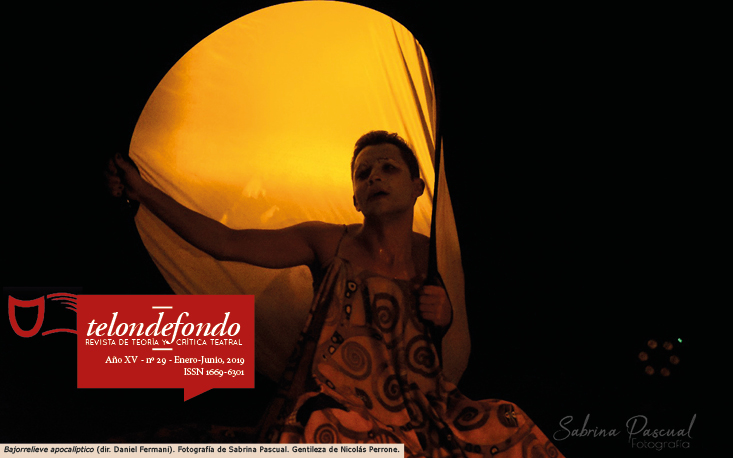Theatrical Praxis an the Political: Demand, Teatristas, Audience
Abstract
The essay addresses the issues of theatrical praxis from what is now called Lacanian politics (Jacques-Alain Miller) and Lacanian left (Jorge Alemán, Ernesto Laclau and others). The position of the playwright is considered during the process of rehearsals and mise-en-scène, following the contributions of Lacan on the analytical act and its ethical consequences. By orienting the theatrical praxis towards a theater of emancipation and from the perspective of the performative act, it is necessary to review the concept of demand (both the artist’s and the audience’s), the political role of the heterogeneous as a brake on the progressive increase of homogeneity in neoliberal society. Hence, the discussion on the mass-people opposition, as Laclau has proposed, requires a revision of the notion of conviviality raised by Jorge Dubatti. The result is a conceptualization of the theatrical praxis - based on desire, the subject of the unconscious and knowledge - as a field of intervention sustained in artistic creativity and directed at what remains ‘inappropriate’ by the capitalist system. Thus, the theatrical praxis is positioned outside the academic epistemological protocols oriented to the production of knowledge, supported by the reproducibility of experience and craft, and centered on the Cartesian subject, as proposed by theater studies or the philosophy of theater.Downloads
Los autores/as que publiquen en esta revista aceptan las siguientes condiciones:
-
Los autores/as [traductores] conservan los derechos de autor y ceden a la revista el derecho de la primera publicación, con el trabajo registrado con Licencia Creative Commons Atribución-NoComercial-CompartirIgual 4.0 Internacional, que permite a terceros utilizar lo publicado siempre que mencionen la autoría del trabajo y a la primera publicación en esta revista.
-
Los autores/as pueden realizar otros acuerdos contractuales independientes y adicionales para la distribución no exclusiva de la versión del artículo publicado en esta revista (p. ej., incluirlo en un repositorio institucional o publicarlo en un libro) siempre que indiquen claramente que el trabajo se publicó por primera vez en esta revista.
-
Se permite y recomienda a los autores/as a publicar su trabajo en Internet (por ejemplo en páginas institucionales o personales).











